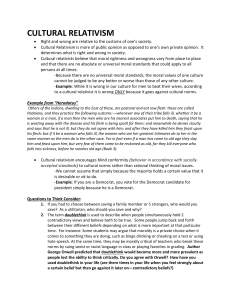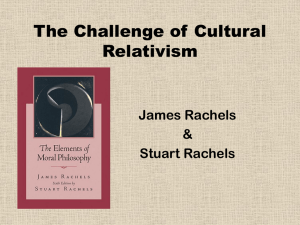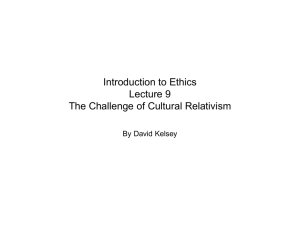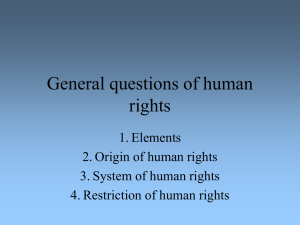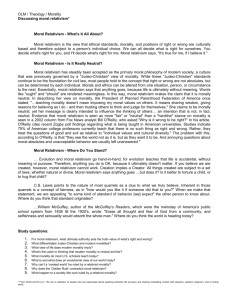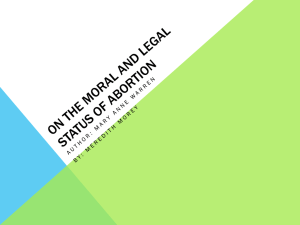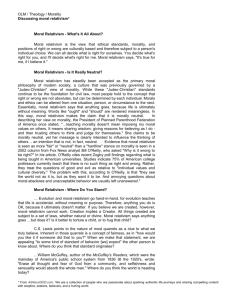Moral Relativism vs. Objectivism: Key Arguments
advertisement
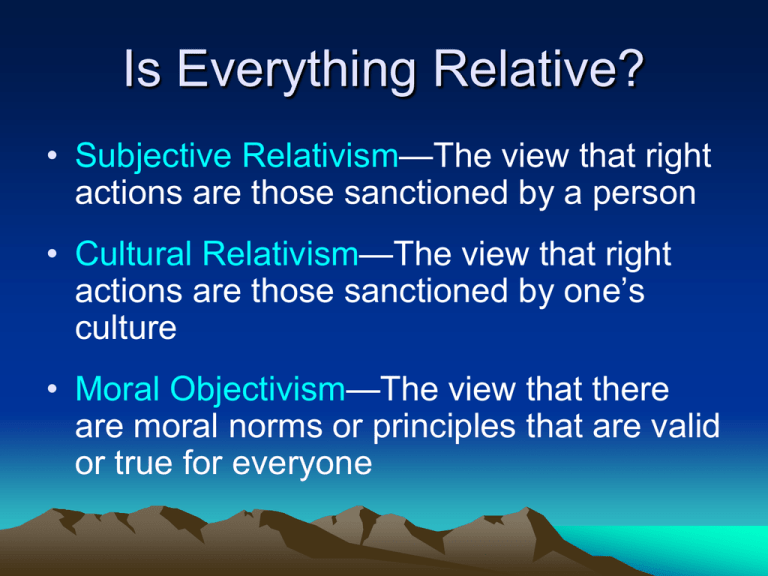
Is Everything Relative? • Subjective Relativism—The view that right actions are those sanctioned by a person • Cultural Relativism—The view that right actions are those sanctioned by one’s culture • Moral Objectivism—The view that there are moral norms or principles that are valid or true for everyone Is Everything Relative? The Case for Moral Relativism — Ruth Benedict Moral principles are based on the common beliefs and practices of social systems. Is Everything Relative? Why Morality Is Not Relative —James Rachels The Argument for Cultural Relativism: 1. If people’s moral judgments differ from culture to culture, moral norms are relative to culture (there are no objective moral standards). 2. People’s moral judgments do differ from culture to culture. 3. Therefore, moral norms are relative to culture (there are no objective moral standards). Is Everything Relative? Why Morality Is Not Relative —James Rachels The main problem with the argument for cultural relativism: From the fact that cultures have divergent moral beliefs on an issue, it does not logically follow that there is no objective moral truth. Is Everything Relative? Why Morality Is Not Relative —James Rachels The argument for cultural relativism (CR) is not sound. CR implies no moral progress. CR does not logically entail tolerance for other cultures. CR implies that we cannot legitimately criticize other cultures. CR implies that social reformers could not be morally right. Is Everything Relative? Judge Not? —Jean Bethke Elshtain • We can and should make moral judgments. The decline of judging is due in part to the triumph of the ideology of victimization coupled with self-esteem mania. An ideology of victimization actually hurts the cause of women’s rights. Is Everything Relative? On Trying Out One’s New Sword —Mary Midgley Understanding and judging other cultures is possible. Moral isolationism would lay down a ban on moral reasoning. Real moral skepticism could lead only to inaction.
